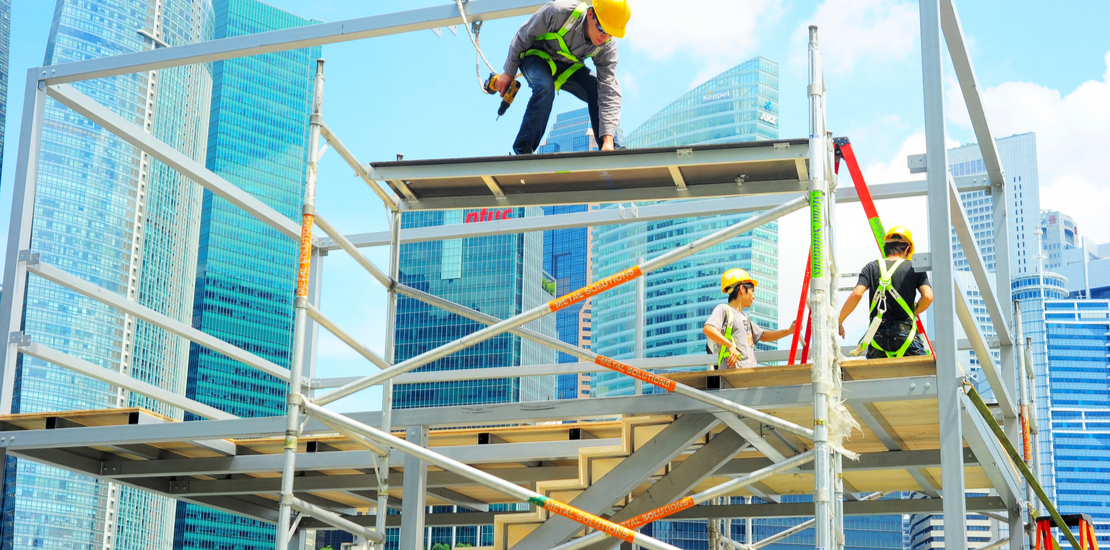

Singapore industries and business fear that loss in business
Singapore industries and business fear that loss in business opportunities and hiked prices might be looming if the migrant worker population decreases in the country.
The foreign workers make the majority of workforce (almost 90%) in Singapore and their reduced number can have a ripple effect on the jobs, service prices and housing rates, fear the industry groups.
Singapore has been in spotlight for its migrant workers policies and their housing conditions ever since the COVID-19 pandemic hit the country.
In a meeting of various trade associations and commerce ethnic chambers in Singapore on Wednesday, a conclusion was drawn that how important the migrant workers were for the country’s economy and the adverse effects their reduced number would cause in the short and long run.
The issues industries in Singapore would face if employing local population of old aged people for labour intensive jobs was a major concern in meeting.
It is very evident that the Singaporeans have a preference for high profile jobs like professionals, managers, executives and technicians (PMET).
In a joint statement, the Singapore Manufacturing Federation (SMF), the Association of Singapore Process Industries (ASPRI) and Association of Singapore of Marine Industries (ASMI) said, “Given Singapore’s limited manpower resources, we would not be able to stay competitive if there are insufficient migrant workers to complement the local workforce in our sectors.”
They further elaborated on the raised concerns, “Should Singapore lose its competitive edge in various industries, demand for labor would fall and jobs, livelihoods and businesses will be at stake. Consequently, there will also be fewer PMET jobs for Singaporeans, such as those in the export oriented industries.”
The reduced number of migrant workers at construction sites would also affect the supply chain and hamper strategic projects including energy plants, tourist attractions and manufacturing facilities.
Housing projects are also said to be affected leading to hiked prices.
Presently around 300,000 migrant workers are employed in the construction companies as compared to 100,000 local workers.
The India-UK Free Trade Agreement (FTA), recently learnt, has attracted some attention for one of its benefits enabling Indian workers…
In a notable step toward inclusive education, the Kerala government has launched the 'Jyothi' scheme to mainstream the children of…
In December 2024, the UK government issued a Technical Capability Notice (TCN) to Apple, requiring the firm to create a…
CrowdStrike Holdings Inc, an Austin, Texas-based cybersecurity company has announced it will lay off about 500 employees around the world,…
The union representing the Samsung India Workers' Union (SIWU), which is affiliated with the Centre of Indian Trade Unions (CITU),…
There has been a dramatic change in Florida's workers compensation landscape. Recent legal reforms to improve access to care and…
This website uses cookies.
Read More